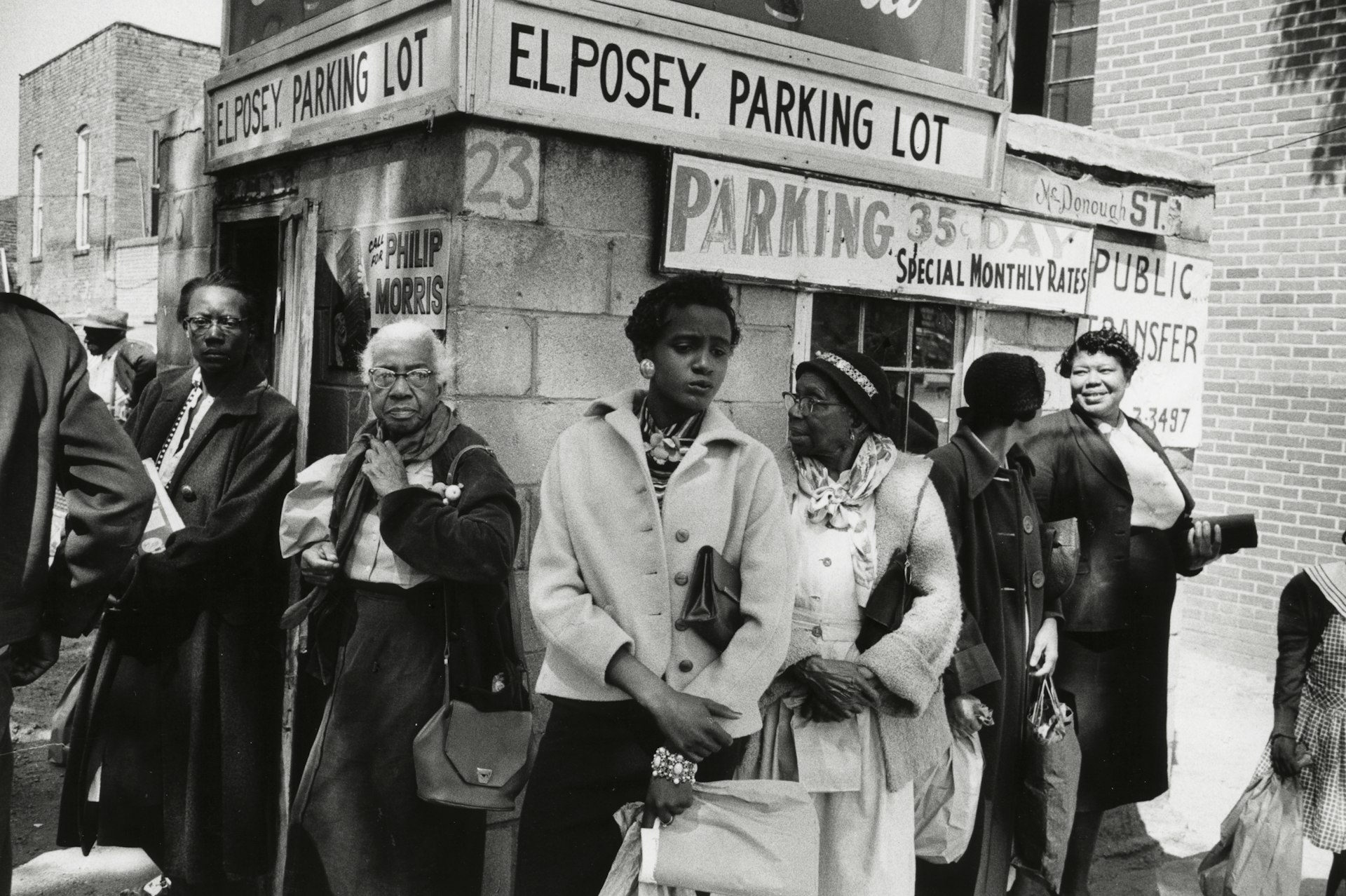Lyrical portraits of Omaha, America’s Heartland
- Text by Miss Rosen
- Photography by Gregory Halpern

The American Heartland has many connotations. It’s a mythical term steeped in images of family, religious community, hard work, drinking, and the army – each rooted in the archetype of the All-American Man.
It has fascinated painters and photographers alike, from Robert Frank to Dorothea Lange, Edward Hopper to Grant Wood. For the past 15 years, Magnum photographer Gregory Halpern has immersed himself in this fabled world, capturing a panoply of historic symbols to create the new book Omaha Sketchbook (MACK) and an accompanying exhibition of the photographs.
“It’s the experience of modern life in America, just as the Impressionists painted the experience of modern life in France,” says Giles Huxley-Parlour, gallerist. “It’s a national obsession.”
“As an artist growing up in America, this is a subject that is irresistible. If you look at the paintings of Hopper, they’re about the emptiness of the heart of the American Dream. It’s an endlessly fascinating [subject].”
In Omaha Sketchbook, Halpern captures the nostalgia of the titular city. It’s as if someone stopped the clock in 1963: there are scenes of sun-drenched family homes, the church, the football team suited up, the Boy Scouts in their regalia, the meat plant, and the water tour at sunset. It is an epic poem to a city and nation built on the undying belief in Manifest Destiny.

Boy Scouts 1, Omaha, NE © Gregory Halpern

Bridge (Evening), Omaha, NE © Gregory Halpern
“There’s a strong sense of vernacular poetry in the book: lots of overexposed blurred pictures, power stations, faded pictures, casually composed pictured deliberately snapshot to give a sense of a language that sums up the day to day aesthetic,” Huxley-Parlour says.
“There’s a look in the book of the disposable Instamatic Kodak; the one-time-use cameras you used to buy for $5, and there’s a feel of photographs that are not about composition and elegance but are about raw feeling, power, and place.”
At the same time, there is a sense of the monumental within these quiet images of daily life; a feeling of something heroic that tugs at the heartstrings of nationalists.
“My feeling is that this isn’t about the future, but an America rooted in the past,” Huxley-Parlour says. “It’s about this old fashioned notion of American values in a fairly normal city, in a normal part of America. This is the sort of place where right-wing values that hold firm and always have done. It’s a view of a traditional America on the precipice of modernity. I don’t see much of the future there.”

Card Game, Nebraska, Correctional Youth Facility, Omaha, NE © Gregory Halpern

Julia, Reserve Officer Training Corps, Omaha, NE © Gregory Halpern courtesy Huxley-Parlour Gallery

Lewis, Football Practice, Omaha, NE © Gregory Halpern courtesy Huxley-Parlour Gallery

Dog on Hill (Sunrise), Omaha, NE © Gregory Halpern courtesy Huxley-Parlour Gallery

Omaha, NE (Downtown Through Sunflowers) © Gregory Halpern courtesy Huxley- Parlour Gallery

James in Car, Omaha, NE © Gregory Halpern courtesy Huxley-Parlour Gallery

Emilio, Omaha, NE © Gregory Halpern courtesy Huxley-Parlour Gallery

John, Service Clerk, Cubby’s Grocery Store, Omaha, NE © Gregory Halpern courtesy Huxley-Parlour Gallery
Gregory Halpern: Omaha Sketchbook in on view at Huxley-Parlour Gallery in London through October 12, 2019.
Follow Miss Rosen on Twitter.
Enjoyed this article? Like Huck on Facebook or follow us on Twitter.
Latest on Huck

How Labour Activism changed the landscape of post-war USA
American Job — A new exhibition revisits over 70 years of working class solidarity and struggle, its radical legacy, and the central role of photography throughout.
Written by: Miss Rosen

Analogue Appreciation: Emma-Jean Thackray
Weirdo — In an ever more digital, online world, we ask our favourite artists about their most cherished pieces of physical culture. Today, multi-instrumentalist and Brownswood affiliate Emma-Jean Thackray.
Written by: Emma-Jean Thackray

Meet the shop cats of Hong Kong’s Sheung Wan district
Feline good — Traditionally adopted to keep away rats from expensive produce, the feline guardians have become part of the central neighbourhood’s fabric. Erica’s online series captures the local celebrities.
Written by: Isaac Muk

How trans rights activism and sex workers’ solidarity emerged in the ’70s and ’80s
Shoulder to Shoulder — In this extract from writer Jake Hall’s new book, which deep dives into the history of queer activism and coalition, they explore how anti-TERF and anti-SWERF campaigning developed from the same cloth.
Written by: Jake Hall

A behind the scenes look at the atomic wedgie community
Stretched out — Benjamin Fredrickson’s new project and photobook ‘Wedgies’ queers a time-old bullying act by exploring its erotic, extreme potential.
Written by: Isaac Muk

“Welcome to the Useless Class”: Ewan Morrison in conversation with Irvine Welsh
For Emma — Ahead of the Scottish author’s new novel, he sat down with Irvine Welsh for an in-depth discussion of its dystopic themes, and the upcoming AI “tsunami”.
Written by: Irvine Welsh